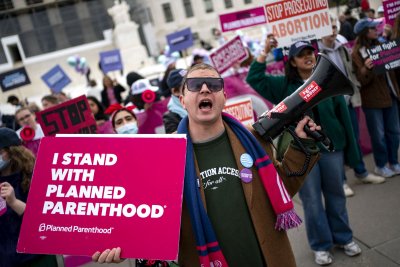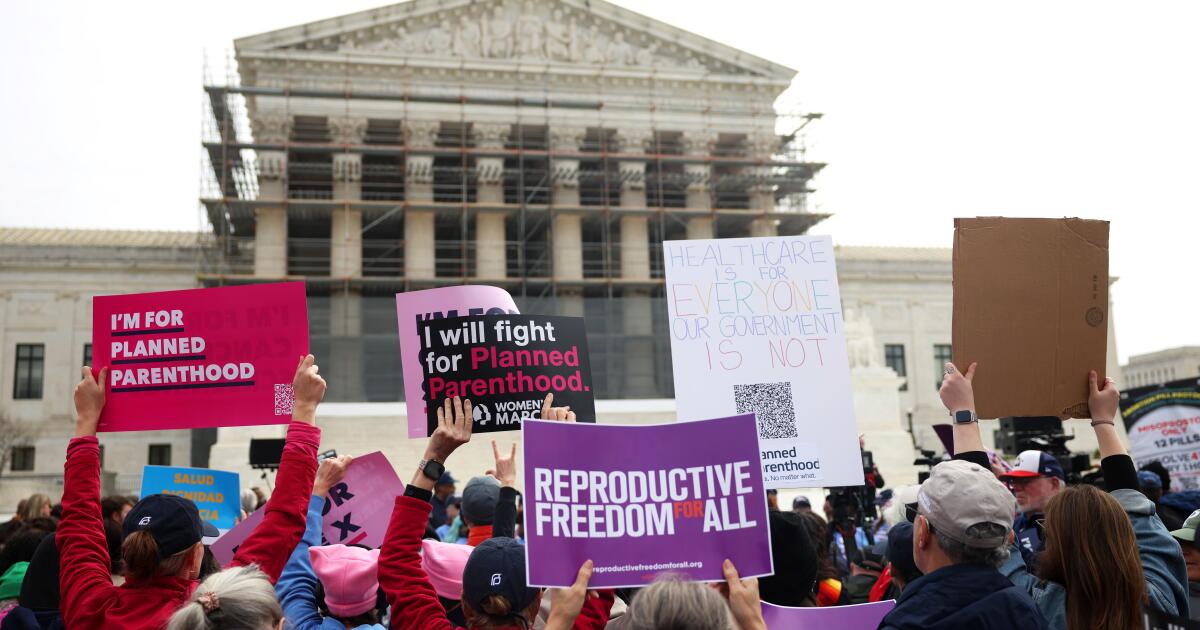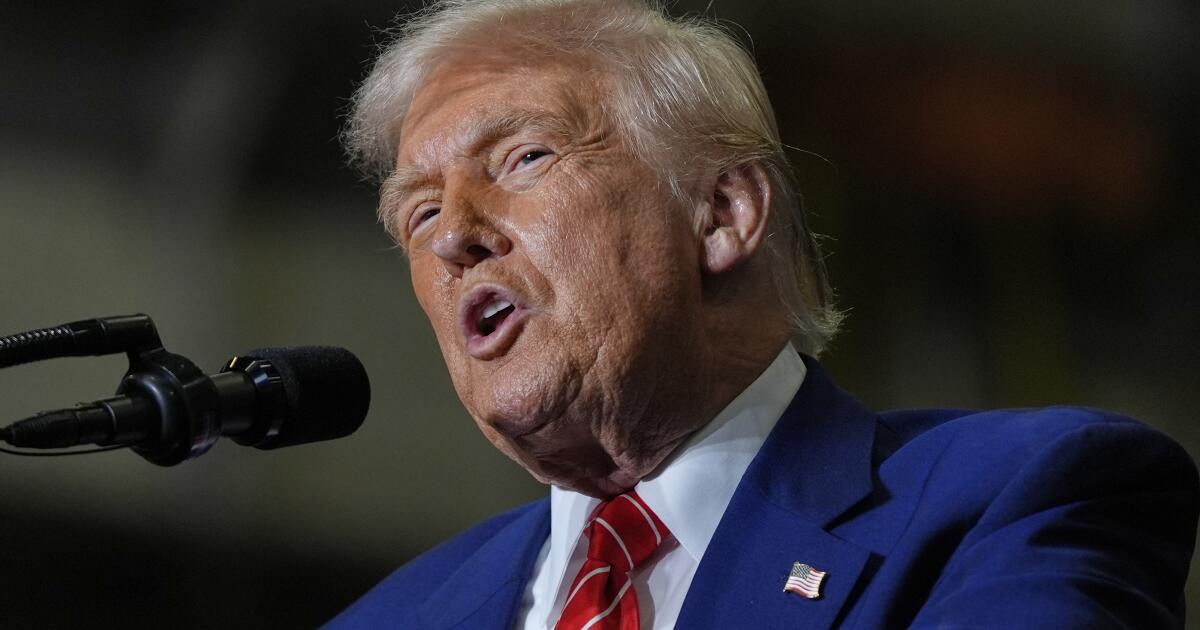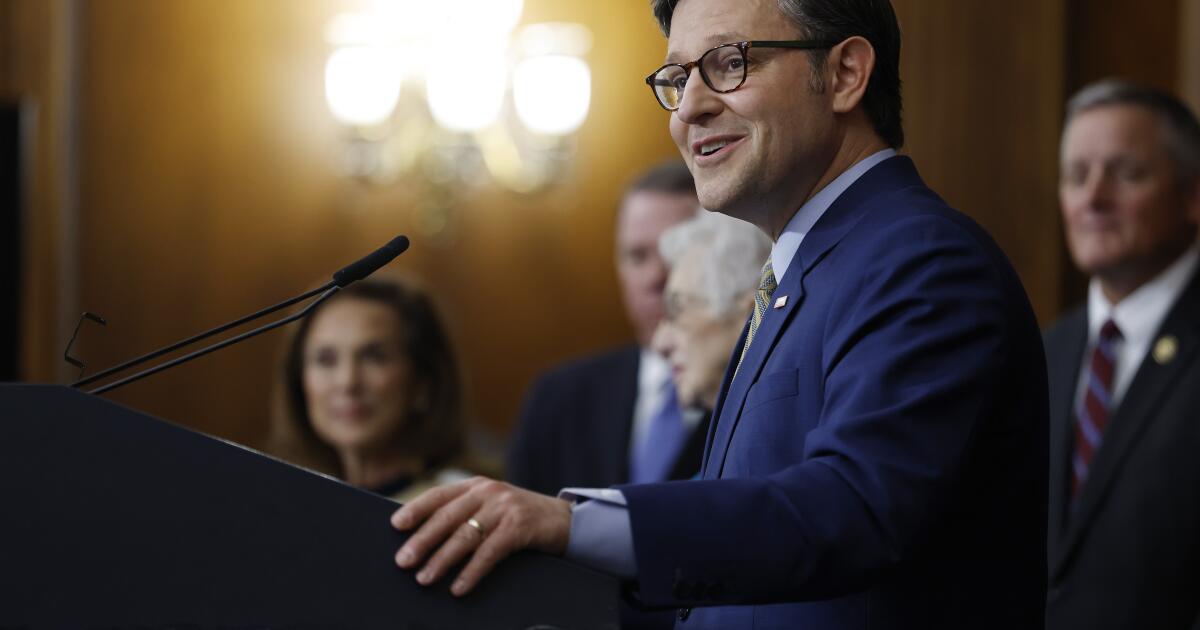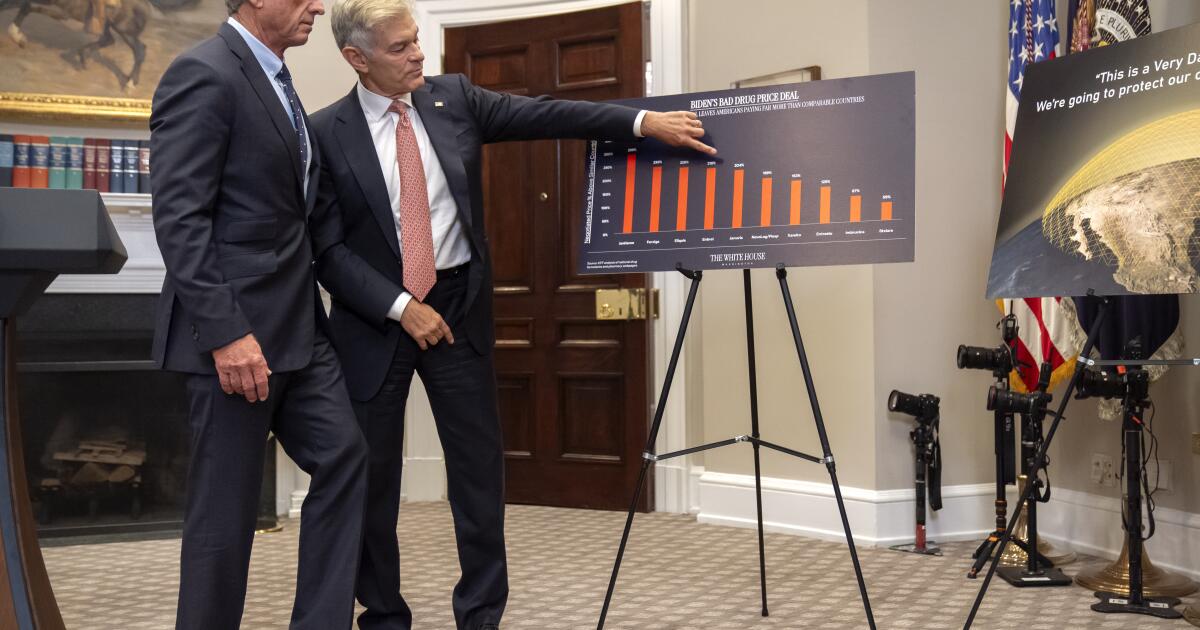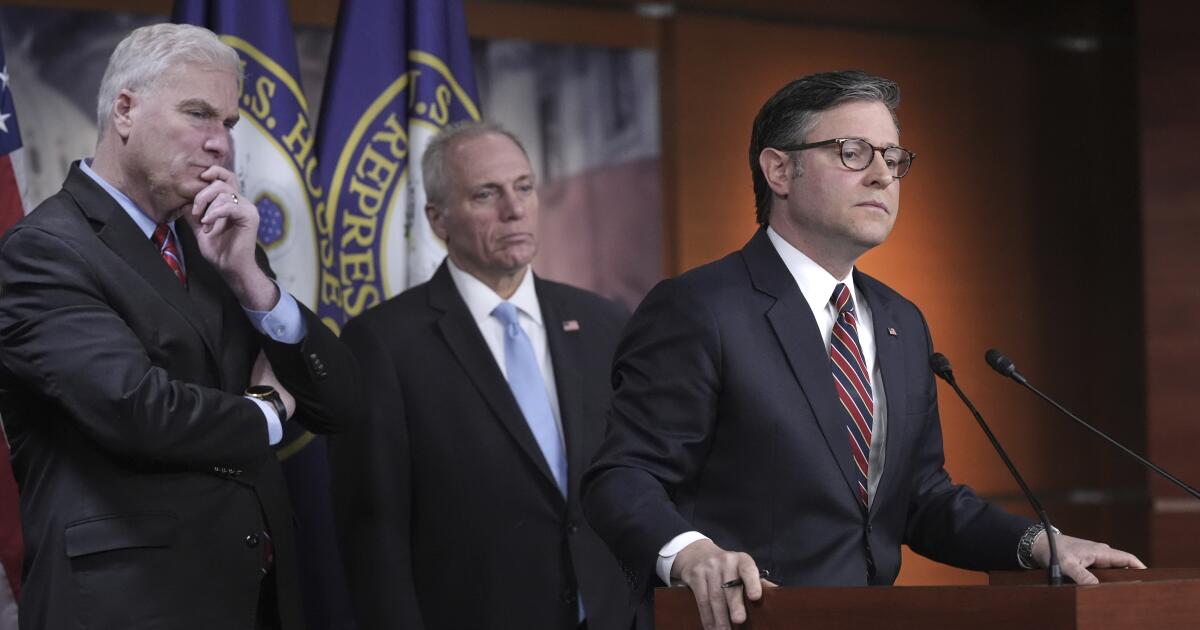WASHINGTON — House Republicans proposed sweeping tax breaks Monday in President Trump’s big priority bill, tallying at least $4.9 trillion in costs so far, partly paid for with cuts to Medicaid, food stamps and green energy programs used by millions of Americans.
The House Ways and Means Committee named its package “THE ONE, BIG, BEAUTIFUL BILL” in all capital letters, a nod to Trump himself. It seeks to extend the tax breaks approved during Trump’s first term — and boost the standard deduction, child tax credit and estate tax exemption — while adding new tax breaks on tipped wages, overtime pay, Social Security benefits and auto loans that Trump promised during his campaign for the White House.
There’s also a tripling of the state and local tax deduction, called SALT, from $10,000 up to $30,000 for couples, which certain high-tax state GOP lawmakers from New York and California already rejected as too meager. Private universities would be hit with a hefty new tax on their endowments, as much as 21%, as the Trump administration goes after the Ivy League and other campuses. And one unusual provision would terminate the tax-exempt status of groups the State Department says support “terrorists,” which civil society advocates warn is a way to potentially punish those at odds with the Trump administration.
Overall, the package is touching off the biggest political debate over taxes, spending and the nation’s priorities in nearly a decade. Not since 2017 has Congress wrestled with legislation as this, when Republicans approved the Trump tax cuts but also failed to repeal and replace the Affordable Care Act, or Obamacare. The cost assessments are only preliminary, and expected to soar.
“Republicans need to UNIFY,” Trump posted on social media before departing for a trip to the Middle East.
Trump said when he returns to Washington, “we will work together on any and all outstanding issues, but there shouldn’t be many — The Bill is GREAT. We have no alternative, WE MUST WIN!”
But one key Republican, Sen. Josh Hawley of Missouri, implored his party not to impair Medicaid, arguing that cutting healthcare to pay for tax breaks is both “morally wrong and politically suicidal.”
“If Republicans want to be a working-class party — if we want to be a majority party — we must ignore calls to cut Medicaid and start delivering on America’s promise for America’s working people,” Hawley wrote in the New York Times.
Late Monday, the House Agriculture Committee released its proposals — cutting $290 billion from federal nutrition programs, in part by shifting costs to the states and requiring able-bodied adults without dependents to fulfill work requirements until they are 64 years old, rather than 54, to qualify for food aid.
Round-the-clock work ahead
As Republicans race toward House Speaker Mike Johnson’s Memorial Day deadline to pass Trump’s big bill, they are preparing to flood the zone with round-the-clock public hearings starting Tuesday and stitch the various sections together in what will become a massive package.
The politics ahead are uncertain. The bipartisan Joint Committee on Taxation said Monday that tax breaks would reduce revenue by $4.9 trillion over the decade — and that was before Trump’s new tax breaks were included.
Texas Rep. Chip Roy, a member of the conservative House Freedom Caucus, warned the price tag could climb to $20 trillion, piling onto the deficits and debt.
“I sure hope House & Senate leadership are coming up with a backup plan,” Roy posted on social media, “…. because I’m not here to rack up an additional $20 trillion in debt over 10 years.”
House Republicans have been huddling behind closed doors, working out final provisions in the 389-page tax portion of the package.
The legislation proposes to boost the standard deduction many Americans use by $2,000, to $32,000 per household, and increase the child tax credit from $2,000 to $2,500 for four years. It adds a new requirement focused on preventing undocumented immigrants from benefiting from the credit even if the children are U.S. citizens, which the Center on Budget and Policy Priorities, a liberal think tank, estimates would affect 4.5 million children who are U.S. citizens or lawful residents.
It would also increase the estate tax exemption, which is now $14 million, to $15 million and index future increases to inflation.
As for the president’s promises, the legislation includes Trump’s “no taxes on tips” pledge, providing a deduction for those workers in service industry and other jobs that have traditionally relied on tips. It directs the Treasury secretary to issue guidance to avoid businesses gaming the system.
The package also provides tax relief for automobile shoppers with a temporary deduction of up to $10,000 on car loan interest, applying the benefit only for those vehicles where the final assembly occurred in the United States. The tax break would expire at the end of Trump’s term.
For seniors, there would be a bolstered $4,000 deduction on Social Security wages for those with adjusted incomes no higher than $75,000 for individuals and $150,000 for couples.
But one hard-fought provision, the deduction for state and local taxes known as SALT, appears to be a work in progress. The legislation proposes lifting the cap to $15,000 for single filers and $30,000 for couples, but with a reduction at higher incomes — about $200,000 for singles and $400,000 for couples.
“Still a hell no,” wrote Rep. Nick LaLota (R-N.Y.) on social media.
Battle over Medicaid, food aid
Meanwhile, dozens of House Republicans have told Johnson and GOP leaders they will not support cuts to Medicaid, which provides some 70 million Americans with healthcare, nor to green energy tax breaks that businesses back home have been relying on to invest in new wind, solar and renewable projects.
All told, 11 committees in the House have been compiling their sections of the package as Republicans seek at least $1.5 trillion in savings to help cover the cost of preserving the 2017 tax breaks, which are expiring at the end of the year.
The final section from the Agriculture Committee proposed cutting the Supplemental Nutrition and Assistance Program, known as SNAP, by expanding work requirements, limiting future expansions of the program and forcing states to shoulder more of the cost.
Along with new work requirements for older Americans, it would also require some parents of children older than 7 to work to qualify, down from 18 years old. Only areas with unemployment rates over 10% would be eligible for waivers.
Some Republicans have already balked at the increased costs to the states, which would be required to contribute at least 5% of the cost of SNAP allotments beginning in 2028.
At the same time, the legislation would invest $60 billion in new money for agriculture programs, sending aid to farmers.
On Sunday, House Republicans on the Energy and Commerce Committee unveiled the cost-saving centerpiece of the package, with at least $880 billion in cuts largely to Medicaid to help cover the cost of the tax breaks.
While Republicans insist they are simply rooting out “waste, fraud and abuse” to generate savings with new work and eligibility requirements, Democrats warn that millions of Americans will lose coverage. In the 15 years since Obamacare became law, Medicaid has only expanded as most states have tapped into federal funds.
A preliminary estimate from the nonpartisan Congressional Budget Office said the proposals would reduce the number of people with healthcare by 8.6 million.
To be eligible for Medicaid, there would be new “community engagement requirements” of at least 80 hours per month of work, education or service for able-bodied adults without dependents. People would also have to verify their eligibility to be in the program twice a year, rather than just once.
There are substantial cuts proposed for green energy programs and tax breaks, rolling back climate-change strategies from the Biden-era Inflation Reduction Act.
Mascaro and Freking write for the Associated Press. AP writers Amanda Seitz, Leah Askarinam and Mary Clare Jalonick contributed to this report.
